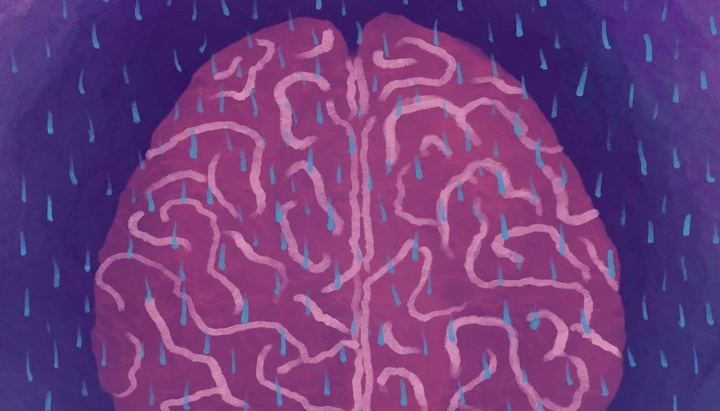
View pictures in App save up to 80% data.
Recent studies indicate that a restful night's sleep can refresh your mind, much like starting a dishwasher before sleeping and waking up to find everything tidy and organized in your thoughts.
A team of scientists from around the world explains the process as a method of clearing out the waste that accumulates in the brain while we are awake.
Their research also sheds light on how sleeping medications might interfere with the brain's "brainwashing" mechanisms, which could have lasting impacts on cognitive abilities.
Scientists have discovered that the brain features an inherent waste clearance mechanism known as the 'glymphatic system.' This system facilitates the circulation of fluid within the brain and spinal cord to help eliminate waste.
This process aids in eliminating harmful proteins that create sticky plaques associated with neurological conditions like Alzheimer's disease; however, the underlying mechanisms that propel this system have been elusive until recently.
Researchers at the University of Copenhagen in Denmark discovered that a molecule known as norepinephrine is crucial for the brain's cleansing process in mice.
In the deep stages of sleep, the brainstem emits small bursts of norepinephrine approximately every 50 seconds.
The lead researcher of the study, Professor Maiken Nedergaard from the University of Rochester in New York, elucidated that norepinephrine causes blood vessels to constrict, producing slow pulsations that establish a rhythmic movement in the adjacent fluid, facilitating the removal of waste.
She remarked, “It’s similar to starting the dishwasher before heading to sleep and waking up to a refreshed mind.”
"We're fundamentally exploring the factors that influence this mechanism and aiming to characterize restorative sleep through the lens of glymphatic clearance."
In their quest for clues, she and her team investigated the effects of sleep on mice brains. Their primary focus was on the connection between norepinephrine levels and blood circulation during deep sleep phases.
Researchers discovered that fluctuations in norepinephrine levels are linked to changes in brain blood volume, indicating that norepinephrine may initiate a rhythmic pulsation within the blood vessels.
The researchers subsequently analyzed the relationship between variations in blood volume and the flow of fluid within the brain, discovering that fluctuations in brain fluid flow align with changes in blood volume. The blood vessels function as pumps, driving the adjacent brain fluid to remove waste materials.
"Think of norepinephrine as the conductor of an orchestra," said Dr. Natalie Hauglund, the lead author of the study from the University of Copenhagen and the University of Oxford.
"The rhythmic contraction and expansion of the arteries create a balance that propels the cerebro-spinal fluid through the brain, effectively eliminating waste materials."
Dr. Hauglund subsequently inquired whether all types of sleep were essentially the same.
In order to investigate, the research team administered zolpidem, a widely used sleep aid, to mice.
Researchers discovered that the norepinephrine levels during deep sleep were reduced by 50% in mice treated with zolpidem compared to those sleeping naturally. While the zolpidem-treated mice did fall asleep more quickly, there was a significant decrease of over 30% in fluid transport into the brain.
The researchers say their findings published in the journal Cell show that the sleeping pills likely disrupt the norepinephrine-driven waste clearance during sleep—and the findings probably apply to humans, as well, because also have a glymphatic system.
Researchers have detected comparable patterns of norepinephrine waves, blood circulation, and cerebrospinal fluid movement in humans.
“More and more people are using sleep medication, and it’s really important to know if that’s healthy sleep,” said Hauglund in a media release. “If people aren’t getting the full benefits of sleep, they should be aware of that, so they can make informed decisions.”
Their research might also shed light on the ways in which inadequate sleep could play a role in the development of neurological conditions like Alzheimer’s.
"With our understanding that norepinephrine plays a key role in the brain's cleansing process, we may be able to discover ways to promote longer and more restorative sleep for individuals," Professor Nedergaard concluded.









